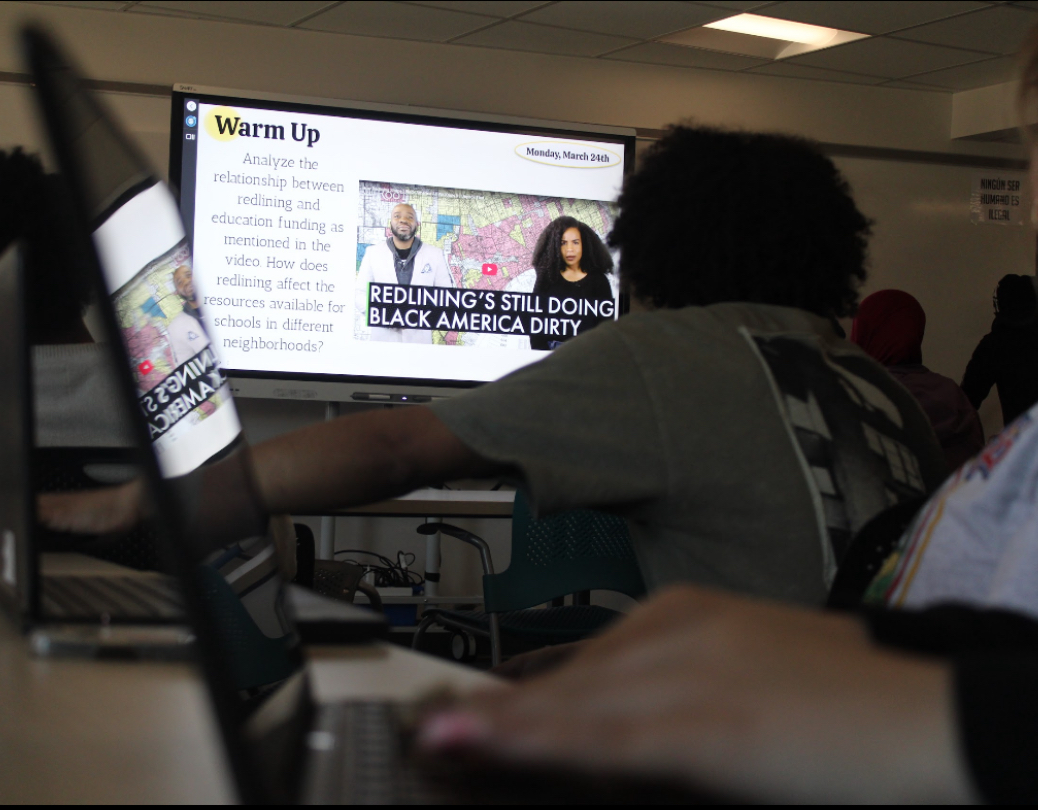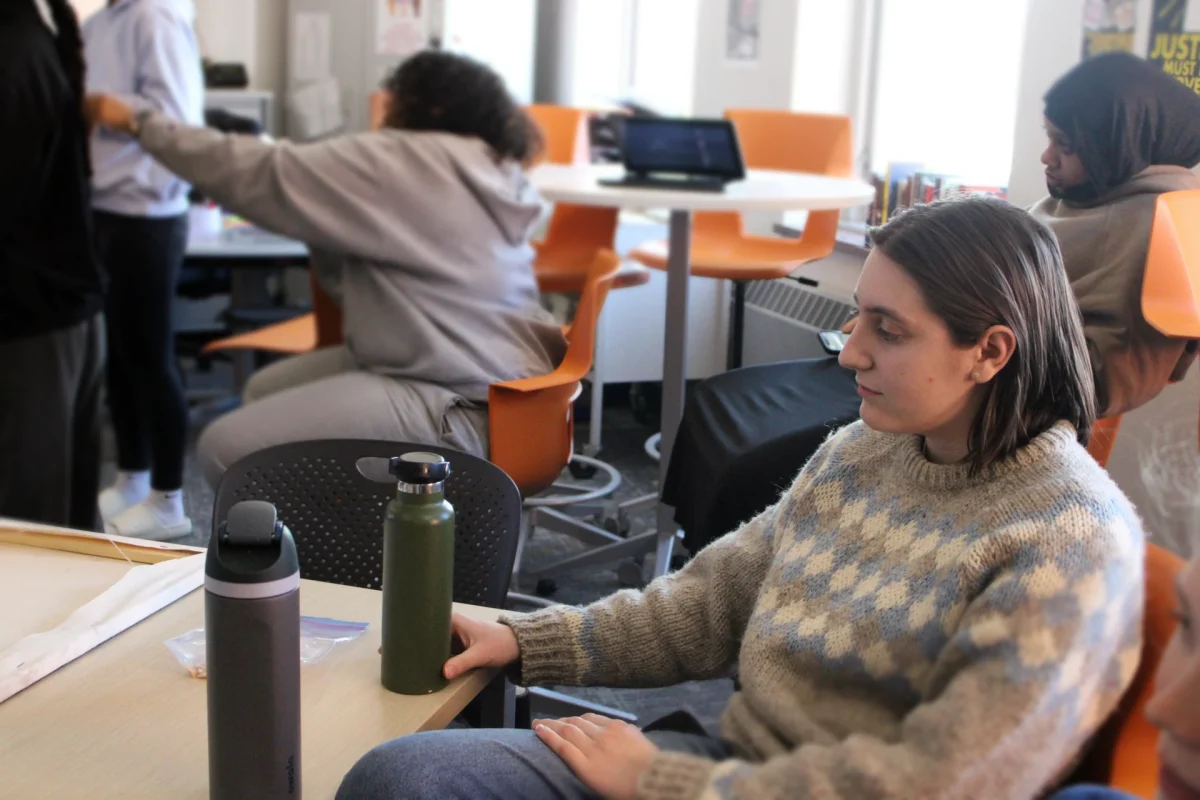PCP: Long term impacts of AI

AI is going to have a major impact on the world, and we need to confront it head-on by protecting kids’ education from it. AI will make kids lazy in the long run. With the way our world is evolving, we are going in the direction of becoming heavily dependent on AI. Most students use it constantly to get answers to questions, and that is going to result in a society depending on someone or something making decisions for us instead of problem-solving as a whole. AI should not be something that’s incorporated or used in a classroom setting.
The whole point of learning is to attain knowledge and problem-solve when faced with challenges. The use of AI hinders this. The idea of school is based on the premise that kids are going to be able to challenge themselves mentally, and using AI in everyday life, especially in the school system, is going to hurt kids’ future abilities. Being able to retain knowledge and problem-solve has long-term benefits in the future of how independent people become. AI shows how heavily dependent we are on technology and will create bad habits in the future for how we do things independently.
AI, while useful, is something that should not be incorporated into our lives as a society. Just asking a device to do things for you instead of taking the time to do them yourself isn’t beneficial. It’s important to challenge your mind but also being able to develop skills that will benefit when you have a job in the future depends on you facing hard challenges.
That shows that this habit of only using AI to get work done because it is convenient will make tasks difficult to handle because students did not use the time in school to learn how to problem solve by themselves and learn things naturally.
Another issue I have seen from AI is instant gratification. The speed of an answer or response AI gives you a mindset for people/students to think things will come easy. In reality, people have to challenge themselves mentally to accomplish something that takes struggle. With this instant gratification, people are starting to rely on AI, causing them to be unable to react to real-world situations.
When kids use AI, it incentivizes them to not listen and retain knowledge in class because they know they can rely on AI. They won’t learn how to face adversity in the classroom l and will not pay attention which will lead to the development of bad habits. Students should be creating good habits in the classroom but aren’t retaining them because of the dependence that they have on using AI.
Students need to take a step back from AI in everyday life and notice how it’s developing horrible habits that will be detrimental to how students do things independently. Whether it’s problem-solving or doing something on your own, students have to develop those habits to be able to do them on their own, the rising dependence on AI will make kids lazier.
AI will be the future of the world, whether we decide to confront it in school or not. We need to address it. Looking back on past developments of technology, I know AI will not make kids lazy in the long run. The key issue with AI and its potential long-term impacts is how it’s being used. Students should be properly taught about how to use it, ensuring it enhances rather than diminishes their education. AI can assist in solving tasks quickly, but it cannot replace the learning process. Instead, it provides opportunities for students to focus on more complex and creative tasks, fostering deeper understanding and skills.
The challenge lies not with AI, but with how it is integrated into the learning process. In a perfect world, AI would be regarded as a responsible tool, used by students to enhance their learning and understanding in any subject. While we don’t live in a perfect world, AI can be regulated and used wisely to support education. We don’t fully understand the long-term effects AI may have on children’s learning and development. We are only beginning to explore the long-term effect, to ensure it supports rather than hinders their educational journey. Unlike the unknown long-term impacts of COVID-19 on education, the integration of AI can be managed and used to ensure positive outcomes.
Setting aside the role administrators should play in educating children about AI, teachers also play a crucial role in both teaching AI and addressing why many kids misunderstand it. Teachers should approach the use of AI in the same way as the introduction of the computer. In the 1970s, the idea of schools providing students with a device containing the world’s knowledge that offered instant answers would have been seen as harmful, as it might lead to widespread cheating. They would have argued that such technology should be banned to protect educational integrity. Today, we understand that this premise is false. Computers are a great tool for enhancing kids’ learning abilities. If teachers were to approach AI similarly, any potential problems that could arise with AI would be addressed in a way not dissimilar to the way problems with computers were addressed.
The reason AI will also be beneficial is the aspect of responsibility. If kids are taught early on the major impact AI can have on their education, but also taught responsibility alongside it, that can also have long-term positive effects. AI in that regard should be seen no different from a calculator; a tool that makes things easier, not makes kids dumber.
AI should also be introduced to children from a pragmatic perspective. AI is the future whether we teach it to kids in school or not. AI will be taking jobs, advancing technology and most of all ingraining itself into every aspect of future life. We teach computer skills and offer courses on them, extending that same privilege to AI. AI will only make children lazy if we do nothing productive with it. Computers have not made kids lazy, Siri did not make kids lazy—they made things easier and more efficient for people. Teaching children how to use AI adequately will have the same positive effect.









